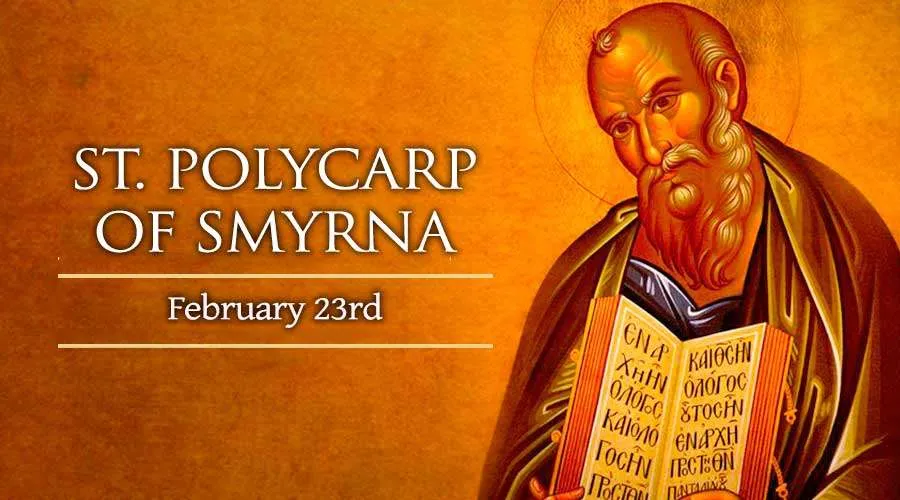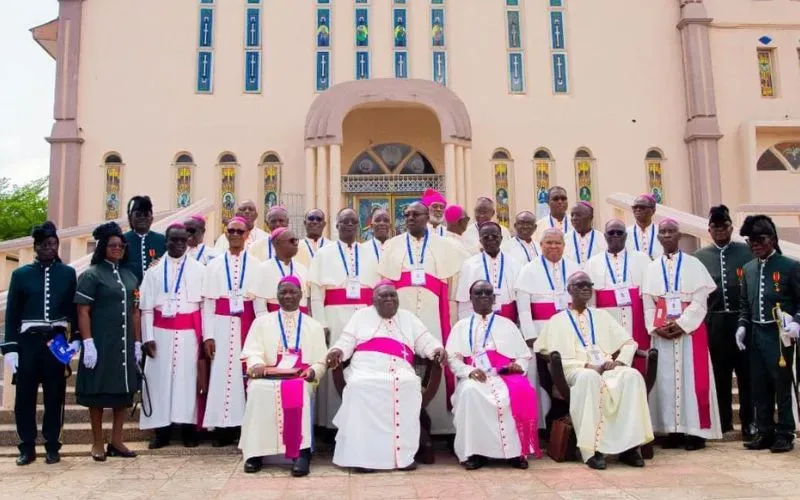Sub-Saharan Africa, 23 February, 2024 / 11:15 am (ACI Africa).
On Feb. 23, the Catholic Church remembers the life and martyrdom of St. Polycarp, a disciple of the apostle and evangelist St. John. Polycarp is celebrated on the same date by Eastern Orthodox Christians, who also honor him as a Saint.
Polycarp is known to later generations primarily through the account of his martyrdom, rather than by a formal biography. However, it can be determined from that account that he was born around the year 69 AD. From the testimony he gave to his persecutors – stating he had served Christ for 86 years – it is clear that he was either raised as a Christian, or became one in his youth.
Growing up among the Greek-speaking Christians of the Roman Empire, Polycarp received the teachings and recollections of individuals who had seen and known Jesus during his earthly life. This important connection – between Jesus' first disciples and apostles and their respective students – served to protect the Catholic Church against the influence of heresy during its earliest days, particularly against early attempts to deny Jesus' bodily incarnation and full humanity.
Polycarp's most significant teacher, with whom he studied personally, was St. John – whose contributions to the Bible included not only the clearest indication of Jesus' eternal divinity, but also the strongest assertions of the human nature he assumed on behalf of mankind. By contrast, certain tendencies had already emerged among the first Christians – to deny the reality of Jesus' literal suffering, death, and resurrection, regarding them as mere "symbols" of highly abstract ideas. With John's help, Polycarp may have been the one who compiled, edited, and published the New Testament
Another Catholic teacher of the second century, St. Irenaeus, wrote that Polycarp "was not only instructed by apostles, and conversed with many who had seen Christ; but he was also, by apostles, appointed bishop of the Church in Smyrna." In a surviving letter that he wrote to the Philippians, he reminded that Church – which had also received the teaching of St. Paul – not to surrender their faith to the "gnostic" teachers claiming to teach a more intellectually refined gospel.







